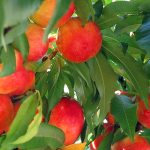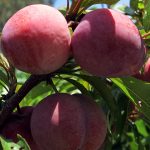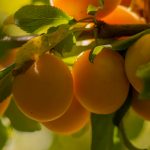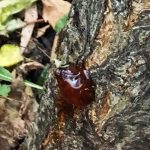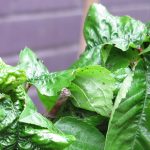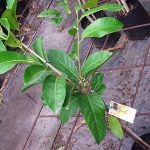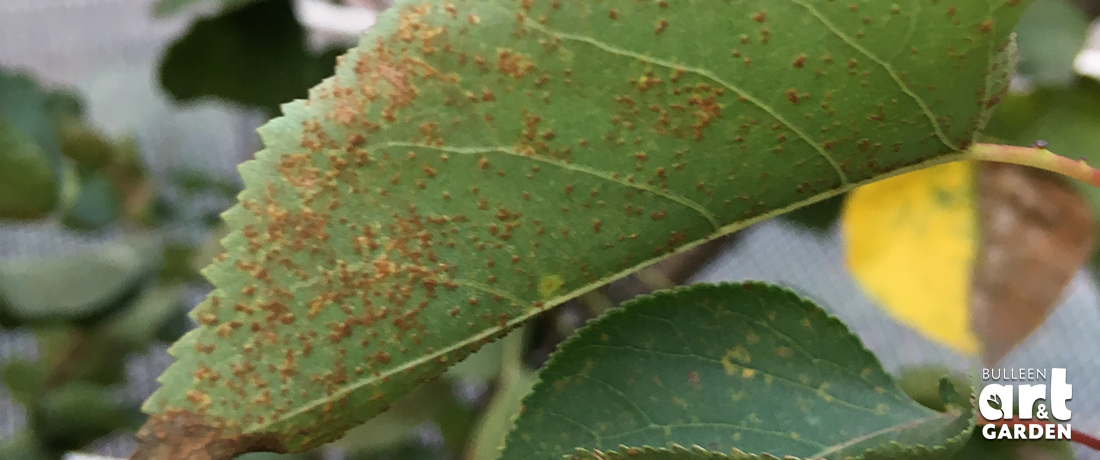
This is a fungal issue affecting stone fruit. It is seen as small dark spots on immature fruit, becoming round brown freckles, sometimes scabby, on mature fruit. It is often just cosmetic and the fruit is perfectly fine to eat, however it become so dense that the fruit is rotten or shrivels and falls off. It is mostly apparent towards the end of the season, as the fruits swell and ripen. At this stage it is too late to do anything about your current crop. However, there is plenty to do to avoid future problems.
After harvest, remove all dead or damaged fruit from the tree. Sweep / rake up all leaf litter under the tree and dispose of it. If the infestation was a heavy one, spray the tree with a copper based fungicide at the first sign of leaf drop. This may force the tree to rapidly drop its leaves and move into winter dormancy, which is not a problem. Remove all leaf litter and dispose of.
Over winter, prune off any clearly dead or infected twigs.
Spray trees again with either a lime or copper based fungicide at bud swell – before the leaves emerge. This will be in late winter or early spring, depending on the tree variety and the season. Ensure all the small twigs are sprayed, as these harbour the fungal spores.
Do another spray at shuck time – this is when the last bit of the blossom falls away from the developing tiny fruit. If the infestation was bad the previous season, a follow up spray 6-8 weeks later should be done.
If you do all this – you shouldn’t have a problem, and you can ease back with the spraying the following year, especially if conditions are dry. Wet springs and summer make the disease worse.
A note about spraying
It is tempting to just spray and spray a backyard tree, to the point where it is running with the fungicide. Don’t do this. Just spray ‘to the point of run off’, so the spray just gently sticks onto the tree and doesn’t run off. Nor do you want excess copper running into your soil, as copper is a known killer of the earth worm – which is one of your garden’s best friends.

